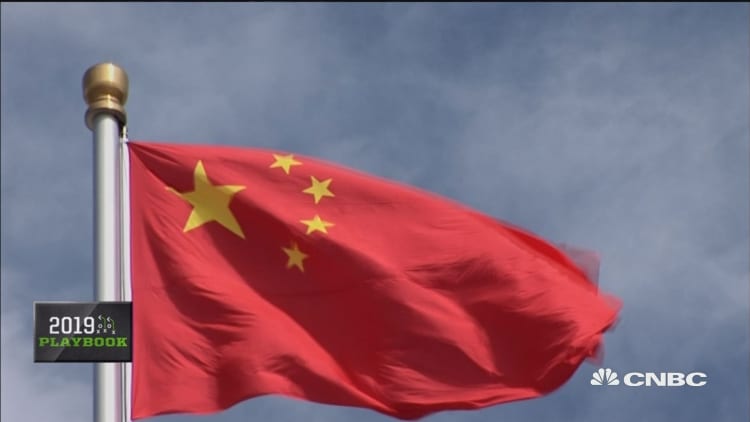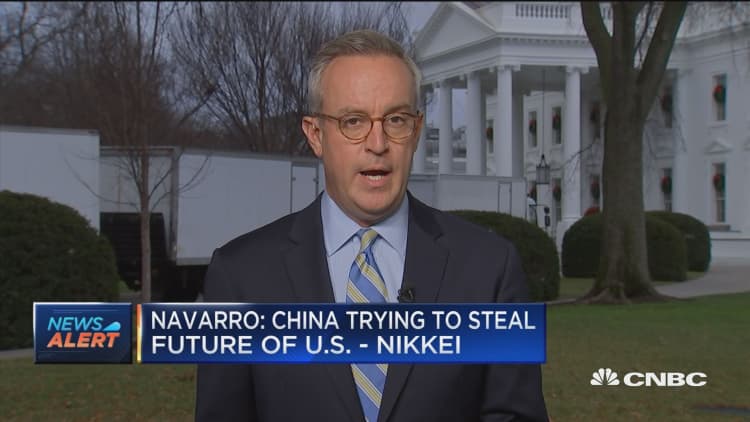China is reportedly considering a new law on foreign investment that would emphasize the illegality of forced tech transfers — the practice of which has been a major complaint from Washington amid the ongoing tariff battle between the world's two largest economies.
Multiple local outlets reported on the under-consideration law, and Beijing-based news agency Caixin said Sunday the current draft calls for the prohibition of local governments "forcing foreign businesses to transfer technology or illegally restrict(ing) their market access."
The draft law has been interpreted by some as a move from Beijing to address complaints raised by the U.S. and others about the way China treats foreign firms hoping to do business in the country. Those grievances, coupled with a giant trade imbalance between the two global super powers, have led to the ongoing tariff battle that's roiled global markets.
China has long maintained that forced tech transfers are against its policy — and do not occur whatsoever — yet foreign business and government groups say the practice has continued nevertheless. A new law from the country's central authority may do little to quell concerns about what many describe as a regime of unwritten rules that force companies' hands.

"A broad range of experts and market observers agree that China has repeatedly forced foreign multinational corporations (MNCs) to transfer technology to indigenous firms as a condition for market access and that China has persistently failed to protect the intellectual property of foreign firms doing business in China," Lee Branstetter, Carnegie Mellon University professor of economics and public policy, wrote in a June policy brief for the Peterson Institute for International Economics.
The draft of the proposed legislation also said foreign businesses could transfer profits made in China out of the country freely and that their intellectual property would be protected, Caixin reported. In fact, according to the news agency, the law speaks of treating foreign companies and domestic firms equally unless they are operating in certain areas specified on a "negative list."
If the draft is eventually signed into law, it could replace three existing laws regarding Chinese-foreign equity joint ventures, contractual joint ventures and wholly foreign-owned enterprises, the Caixin report said, citing other state media outlets.
Washington and Beijing are currently attempting to negotiate an agreement to their trade war, and have promised to hold off on applying new tariffs to goods coming from the other country until the beginning of March.
U.S. President Donald Trump and Chinese President Xi Jinping had agreed to negotiate structural changes with respect to forced technology transfer and intellectual property protection, the White House statement said in a statement about the ceasefire.
Read more about China's draft law on foreign investment in the Caixin report.
— Reuters and CNBC's Yen Nee Lee contributed to this article.
WATCH: Navarro on China and the Fed


